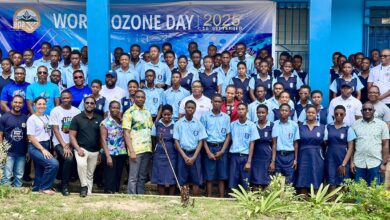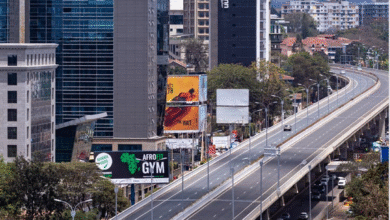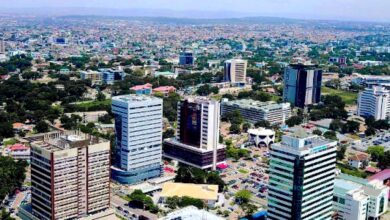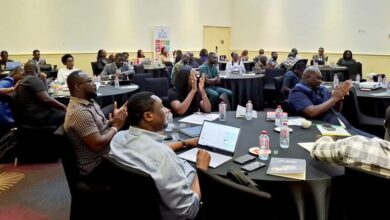Ghana Deepens Climate Dialogue as Civil Society Joins in Shaping New Climate Action Plan
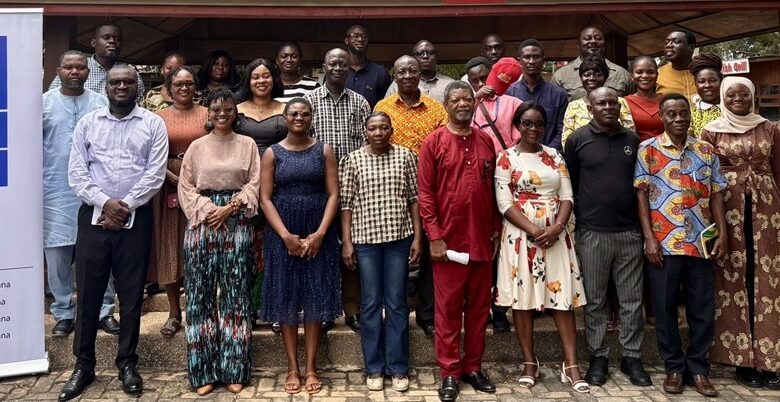
Ghana has begun a major process to update its national plan for tackling climate change and this time, the country is doing it differently. Instead of leaving the work only to government officials and technical experts, civil society groups, women’s organisations, youth networks, and disability advocates are being invited to help design a plan that reflects the realities of communities most affected by climate impacts.
The United Nations Development Programme (UNDP) Ghana, in partnership with the Ministry of Environment, Science and Technology (MEST) and the Environmental Protection Agency (EPA), is leading this inclusive effort under the Climate Promise: From Pledge to Impact Initiative. The initiative supports countries to meet their climate pledges under the Paris Agreement, where each nation outlines its own commitments to reduce greenhouse gas emissions and adapt to the effects of climate change.
The latest consultation, held in Accra, brought together a wide range of civil society organisations (CSOs) to discuss Ghana’s upcoming Nationally Determined Contributions (NDC) 3.0 — the next phase of climate commitments covering the period 2025 to 2030.
A Shift Towards Inclusive Climate Action
In the past, many of Ghana’s climate strategies were shaped by government ministries and technical institutions, often leaving local voices out of the decision-making process. But this new approach marks a shift toward a “whole-of-society” model, one that recognises that people living in vulnerable communities have unique experiences and solutions that can enrich national planning.
Speaking at the consultation, Dr Abdul-razak Saeed, Head of the Environment and Climate Cluster at UNDP Ghana, emphasised that inclusivity is essential if Ghana is to build a fair and effective climate response.
“Health, food security, and livelihoods are all affected by climate change. That is why meaningful climate action must include the voices of all groups, especially those who are often left out,” he said. “UNDP believes that by bringing together government, civil society, and local communities, we can create climate solutions that are just, inclusive, and sustainable.”
He explained that the consultations are not just about collecting opinions but about co-creating a shared national vision for climate action — one that protects people, promotes equality, and strengthens resilience across all sectors of society.
Civil Society at the Centre
For civil society groups, this engagement is a chance to move from the sidelines to the centre of national climate policy. Participants included youth-led organisations, gender equality advocates, disability-focused groups, and community-based organisations working on environment, farming, and social inclusion.
The discussions explored how CSOs could contribute directly to Ghana’s NDC 3.0, either by leading specific community-based climate projects or by integrating their ideas into national programmes on clean energy, reforestation, waste management, and sustainable agriculture.
Mr Daniel Lamptey, Principal Programme Officer at the Environmental Protection Agency (EPA), explained that the decision to involve CSOs early in the process was deliberate.
“In the previous NDC development, civil society participation was limited. This time, we want their ideas and initiatives to be part of the main document from the beginning,” he said. “By working together, we can make sure the NDC reflects the needs and aspirations of all Ghanaians, not just policy-makers.”
From Plans to Action
Beyond the discussions, participants worked on a draft Civil Society Programme of Action (POA) — a roadmap for how CSOs can support and monitor Ghana’s climate commitments once they are finalised. The workshop also deepened understanding of the evolving NDC framework, ensuring that all participants can meaningfully engage in the next stages of the process.
For Ghana, these consultations are not just procedural steps but part of a broader strategy to strengthen accountability and ownership in climate governance. By making room for community voices, the country hopes to create policies that are grounded in real experience — from farmers struggling with changing rainfall patterns to women facing water scarcity and young people seeking green jobs.
Building a Fairer, Greener Future
The partnership between UNDP, MEST, and EPA reflects Ghana’s broader vision of a just and inclusive transition — one where climate action does not deepen inequality but creates new opportunities for all.
Dr Saeed noted that climate change is not only an environmental issue but a development challenge that affects the economy, jobs, and well-being. “By involving communities, we build resilience from the ground up. We make sure that no one is left behind,” he added.
Through the Climate Promise initiative, Ghana aims to strengthen cooperation between government, civil society, and development partners to ensure that climate commitments translate into tangible results — cleaner air, greener energy, sustainable farming, and safer communities.
As the country prepares to finalise its NDC 3.0 ahead of the 2025 global climate deadline, these inclusive consultations are helping to lay the foundation for a more ambitious, people-centred climate strategy — one that recognises that the fight against climate change must start in the places where its effects are most deeply felt.

